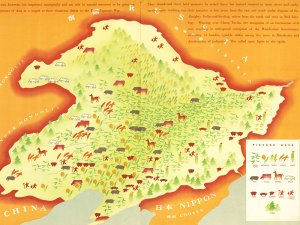Presented By: Center for Japanese Studies
CJS Thursday Lecture Series | Imperial Japan and the Nature of Borders in Occupied Inner Mongolia
Sakura Christmas, Assistant Professor of History and Asian Studies, Bowdoin College

The multiethnic landscape of Inner Mongolia posed fundamental problems around governance and legibility for Japanese authorities after they invaded Northeast China in 1931. This talk examines how Japanese occupiers separated out nomadic and sedentary livelihoods along a new internal border through population transfers and rural development. Here, Japanese imperialism transformed an earlier policy of assimilation into a blueprint for establishing zones of ethnic autonomy. Inner Mongolia later became the first of these zones in 1947. Instead of only seeing the origins of Communist rule as forged in the fires of war against imperialism, this talk points to the significance of the Japanese occupation in shaping the ethnic and ecological bounds of modern China.
Sakura Christmas is an Assistant Professor of History and Asian Studies at Bowdoin College. A scholar of modern Japan, she focuses on the history of imperialism, the environment, and the borderlands. She is currently revising her first book, "Nomadic Borderlands: Imperial Japan and the Origins of Ethnic Autonomy in China".
Sakura Christmas is an Assistant Professor of History and Asian Studies at Bowdoin College. A scholar of modern Japan, she focuses on the history of imperialism, the environment, and the borderlands. She is currently revising her first book, "Nomadic Borderlands: Imperial Japan and the Origins of Ethnic Autonomy in China".